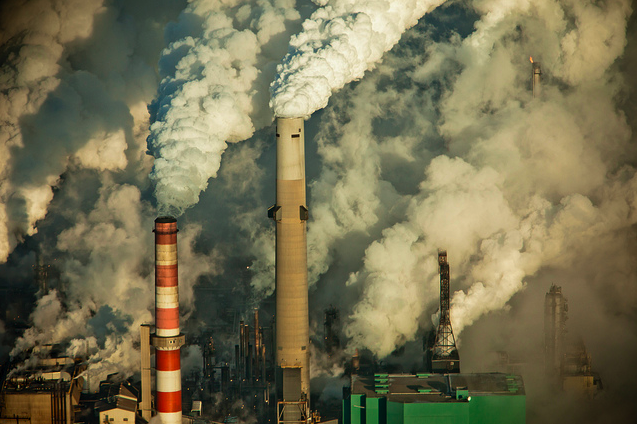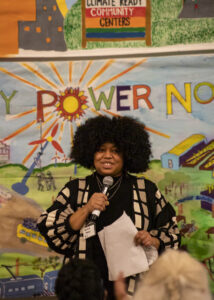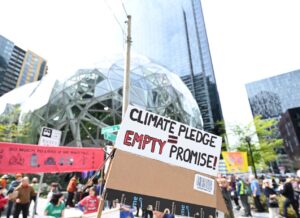Cap & trade has failed communities in California ― why would it be any different here?
In 2013, California adopted the country’s largest cap and trade scheme. Since then, the state’s overall greenhouse gas pollution have dropped from the 2001 peak…but there’s a catch. Many of the most polluting corporations have actually increased their pollution since the program came into effect. Oil refineries, gas corporations, fossil fuel-hooked utilities: all have increased their greenhouse gas emissions and related pollution since 2013.
That’s because cap and trade is a policy that “caps” the total amount of greenhouse gas emissions in the state (which is, undoubtedly, a good thing) but allows individual companies to actually increase their emissions by “trading” purchasing pollution “allowances” from companies that pollute less.
So, while overall emissions may have dropped, the first serious study examining the social impacts of California’s cap-and-trade program, found that 52% of companies regulated by the program saw an increase in annual average greenhouse gas emissions. Cement plants, for example, saw an increase in emissions by almost 75%….cement plants like, say, the Ash Grove plant in south Seattle that accounts for 10% of our city’s overall emissions and massively contributes to the fact that south Seattle residents are three times more likely to have asthma than those who live in the north of our city.
That’s the biggest problem with cap and trade. The corporations that are permitted to increase their pollution rates are overwhelmingly situated in disadvantaged communities; black, brown, and low-income communities that have historically been hit hardest by environmental pollution.
That’s why a number of Washington-based people-of-color-led environmental justice groups, including our friends at Got Green and Community2Community, are deeply concerned that state Senator Carlyle has introduced Senate Bill 5981, proposing a cap and trade system for Washington state.
In a policy paper released by Got Green last week, they argue that cap-and-trade is a “scheme introduced for and by major climate-polluting corporations.”
And they have a point. In Washington state, Senate Bill 5981 originated with British Petroleum ― a corporation which continues to spend ungodly sums of money on opposing climate action. So why is BP, a company that spent $13 million opposing I-1631 last year, supporting cap and trade? Is it because they’ve seen the light and suddenly support meaningful climate action? Yeah, right. In the last five years, BP has spent more money than any other company on earth fighting climate policy.
BP supports cap and trade because it’s figured out how to coexist with California’s cap and trade system. But here’s the thing: BP’s basic business model is incompatible with curtailing catastrophic climate change. So, anything that’s good for BP isn’t good for the rest of us who live on this planet — especially not frontline communities.
In its policy paper, Got Green also argues that cap-and-trade “increases harm to those communities living next to oil refineries, fossil fuel power plants and other carbon-intensive industries.” The evidence from California backs them up.
We cannot have climate justice without environmental justice ― and it’s clear that cap and trade only deepens environmental injustice. For anyone who professes to care about climate justice, cap and trade is a “solution” that we must push back against. Hard.
We hope you’ll join our friends at Got Green and Community2Community as they do exactly that with a No Cap and Trade Rally in Olympia next week. RSVP & more details here.









